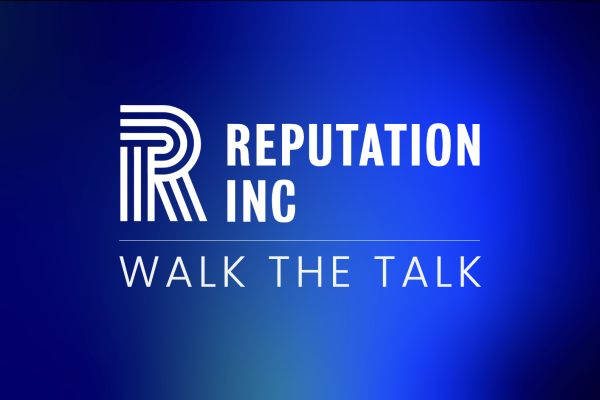
Election – The ultimate reputation test
At Reputation Inc, communicating the strategic role and the positive impact that a good reputation can have on stakeholders critical to business, organisation and personal success is part of our everyday purpose. Reputation Inc will be releasing research into voter perceptions of Ireland’s political parties and leaders on February 3rd. The research was carried out with a nationally representative survey of over 1,000 adults over a one-week period from Friday, January 24th. If you would like to sign up to receive this research then please visit RepIncGE2020
In many ways, an election is one of the ultimate tests of reputation. Political parties are going to the electorate and asking that they trust them with their vote in order to deliver local and national solutions. It’s a difficult task to communicate your vision, values and mission to a wide stakeholder landscape who all have an opinion on how they could do your job better.
Across Ireland, each and every politician and political party has built a reputation in the minds of the voters and on February 8th that reputation will be put to the test. Rightly or wrongly, some have earned reputations for integrity, honesty, diligence, experienced, competent while others are perceived, again rightly or wrongly, as wasteful, untrustworthy or unrelatable and unreliable.
There are many different drivers of a positive reputation but there are some universal themes that will drive voter’s intentions that all organisations can learn from. At its simplest, there are three areas that can define how you are perceived by those most important to you - experience, competence and relatability.
Experience
Your reputation is built on what you have done, not what you promise you are going to do. The promises of politicians hoping to be elected or indeed re-elected are rightly treated with a healthy level of cynicism. The public has seen this ploy before, they know what to expect. Although we’re seeing a large amount of auction politics in what is looking like it will be a generation defining election, the vast majority of the voting public have already allocated their first, second and third preference vote to the people and parties based on emotional, direct interpersonal experience and judgements.
Whether you’re a local independent TD or the CEO of a leading multinational your most important stakeholder will have a view of you that is heavily influenced by the quality of your past relationship and what you have delivered for them to date. Organisations that over-index in this area are excellent communicators, they are consistent in how they treat people, they are empathetic and are focussed on solving problems.

Your reputation is built on what you have done, not what you promise you are going to do.
Competence
People will make judgements about you or your organisation based on how competent they perceive you to be. At an individual level, people want to see leaders who have a clear plan, have the right background and skills to deliver on the task at hand and who seem to be on top of their brief. You can be consistently excellent all the time, but one slip and that reputation can be wrecked irrevocably unless you manage it properly. The public can forgive organisations and people that make slip ups if they are genuine and honest and own up to their mistakes and learn from them.
This aspect of your reputation is highly influenced by what they see and hear about you, so it is vital to have procedures in place to protect and promote your reputation.
Relatability
There’s a reason why many organisations are putting purpose at the centre of their marketing and communications activities. Not only is it the right thing to do but people like people who they share values with. They will more naturally align and advocate for organisations, election candidates and political parties that they think have their best interests at heart. Ultimately, most get into politics to make a positive contribution to society and those that communicate this best and are sincere in doing so will win votes. Organisations that can mirror the expectations of their most important stakeholders will also benefit from a similar transfer of trust and advocacy.
We’re entering into the last critical days of the general election campaign where maintaining or enhancing reputation will be front and centre of candidates’ minds around the country. However, as the old saying goes, a week is a long time in politics and stakeholders will be watching closely before making the ultimate reputation judgement call.



